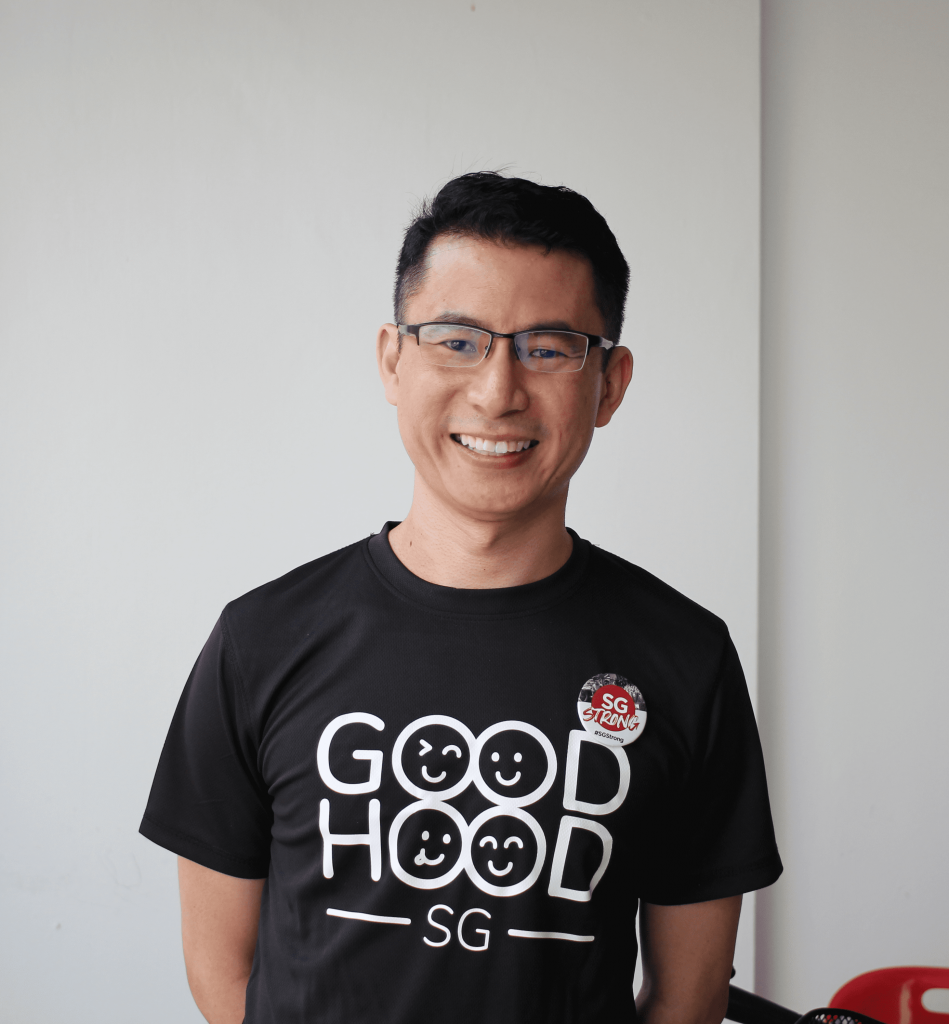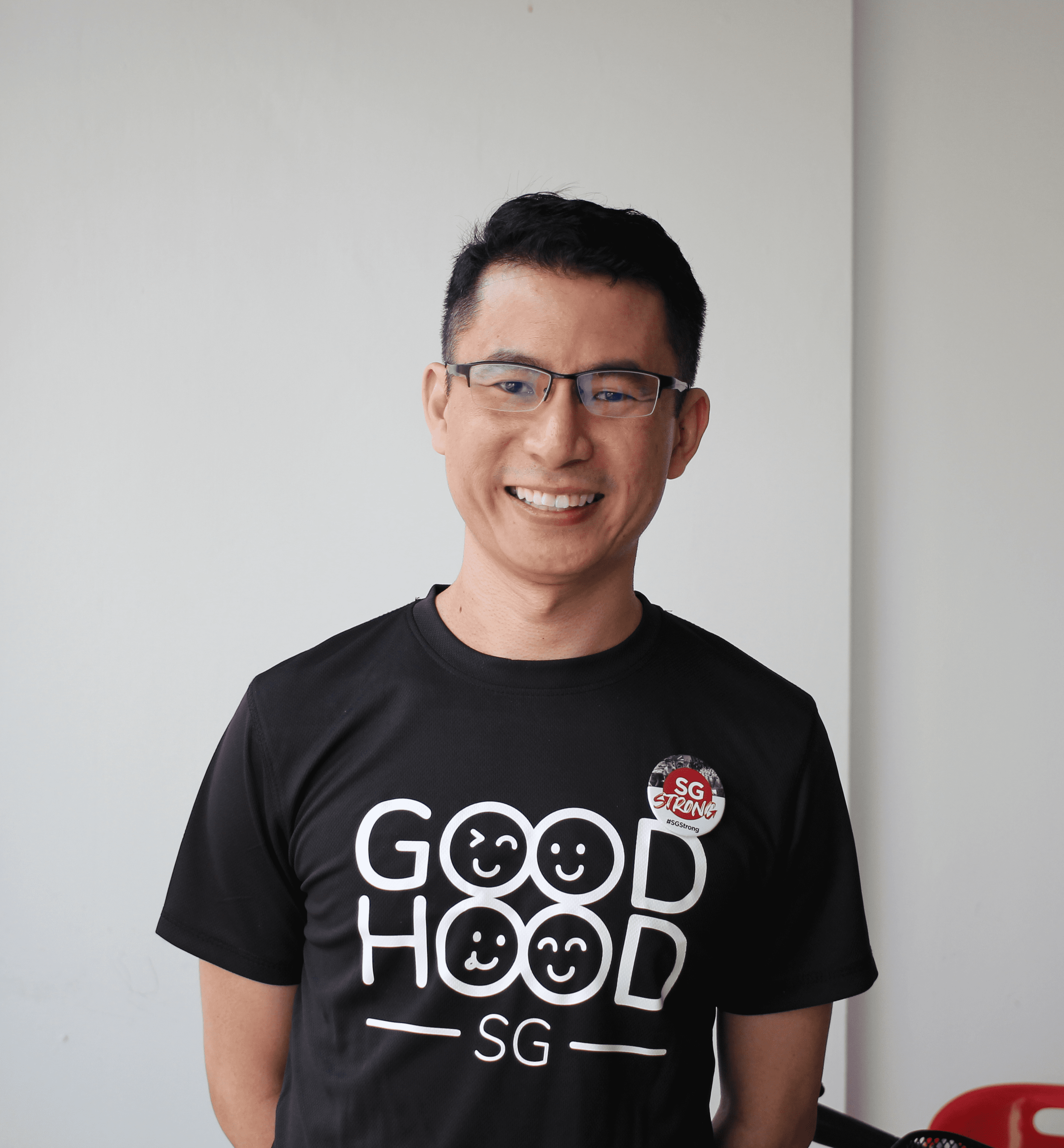
Soft launched on March 22, by tech entrepreneur Nigel Teo and a team of 3 others, GoodHood now has more than 6000 users. Called the “Neighborhood Everyday App”, about 80 per cent to 90 per cent of the posts on the app are from people offering help, ranging from buying groceries and dog walking, to offering cooked meals, he says. The rest are from people seeking help.
In this podcast episode, we talk about the inspiration behind the app, its impact especially during the COVID-19 crisis and Nigel’s view on TechforGood.
You can also read more about GoodHood in this article written by Abhishek Bajaj and Ronald Wong
Read On!
Ever wondered if that neighbour you sometimes see at the lift lobby could use help with a grocery run? Or if you could help your neighbour water their plants or take care of their pet while they are away?
Enter GoodHood.SG founded by Nigel Teo and three other friends. It is a hyperlocal Request & Offer app that has gained more than 6000 users since it was soft launched on 22 March 2020. Members of a neighbourhood can utilise this platform to request for or offer items or services. Such requests or offers can be shared with other users on the app within the same block or neighbourhood.
It all came about late last year when Nigel and friends were chatting about reviving the kampung spirit in their current neighbourhoods where they live but do not know their neighbours. They expressed a desire to know their community better and connect with their ‘village’.
They reflected that fostering the kampung spirit is partly about eschewing a market or transactional mindset within a particular community. A market or transactional model would entail, for example, paying a service provider or exchanging moral obligations with another person for what could be a community activity or favour without strings attached, such as sharing a ladder, or offering home cooked food, or asking someone to fetch your groceries. By re-instilling the agency of a community to meet their members’ needs by internalising what would otherwise be formally externalised services, it creates more opportunities for non-transactional but relational interactions among members of a neighbourhood.
What is unique about it?
A neighbourhood app will bring together people who are in close proximity to one another. Naturally, there are concerns about privacy and authenticity of requests or needs. How do I know if the person I am interacting with is authentic and that I would be safe when meeting them? Are the requests on the platform genuine?
GoodHood.SG takes this seriously. Designed from a mobile-first principle, the app builds a high-trust environment by requiring identity verification through both mobile handphone and Facebook. This reduces the feasibility for recurrent scamming by any one unique individual.
Furthermore, the team behind the app monitors requests being flagged up on the platform and even reaches out to some of the requesters to check in on them.
How does it work?
Signing up requires just an existing social media account such as Facebook to register an account on the app, followed by a mobile number verification. In a way, this is a proxy for verifying a person’s identity, assuming that the social media account already is a validation in itself. However, to ensure privacy, one’s profile name displayed to other users is limited to only the first name and an initial of the last name.
You also need to key in your residential postal code on sign-up. The postal code is a key distinguishing factor from any other social media a which enables hyperlocal functionality.
Within the app, one can make
- a general post, similar to a Facebook post on one’s news feed,
- a post to give away or sell an item,
- a post to offer a service (e.g. home cooked food or pet care), or
- a post to make a request.
One can also respond to existing posts, which can be filtered by categories as well as geographical scope (block, precinct or whole of Singapore).
Of course, users can private message one another. This is helpful for users who wish to share personal details regarding requests or offers only to selected users.
What is the community value-add?
The platform allows users to ask for help anonymously. Users looking to provide assistance can also make an anonymous, pay-it-forward, donation. This allows for more giving to happen within the community itself, building trust and social capital along the way.
While GoodHood.SG is designed for a community response to meet straightforward practical needs and not to address more complex social or systemic issues, the platform presents an exciting opportunity for community first-aid. As first responders, those responding to surfaced needs within their neighbourhood may, for example, pick up on signs of deeper issues and sensitively approach them. Community first responders may then refer or accompany the person to seek assistance from the formal social services. With more training among community first responders, more effective first response could be achieved.
The platform could possibly also fill the gap in last mile social service delivery. This is especially for those who fall through the cracks, e.g. those who do not meet the criteria to access government grants but have existing limitations such as medical conditions that do not allow them to meet their basic needs or those who are otherwise unaware of help avenues.
As with all tech solutions to social problems, the biggest challenge would be to shape optimal user behaviour. At the time of writing this article, there is a post from the GoodHood.SG team on the app warning abusers who make unwarranted solicitation to other users that they may be banned and even reported to the police for theft. Trust and social capital cannot be generated by technology. But platform design, enforcement of platform rules and modelling of ideal user behaviour are some of the means to engender the trust needed for such social tech solutions to work. And the GoodHood.SG team is actively working to develop the platform in this regard.
We look forward to seeing the platform and community grow to achieve its mission of “connect[ing] neighbours to bless and be blessed, kampung-style”!








